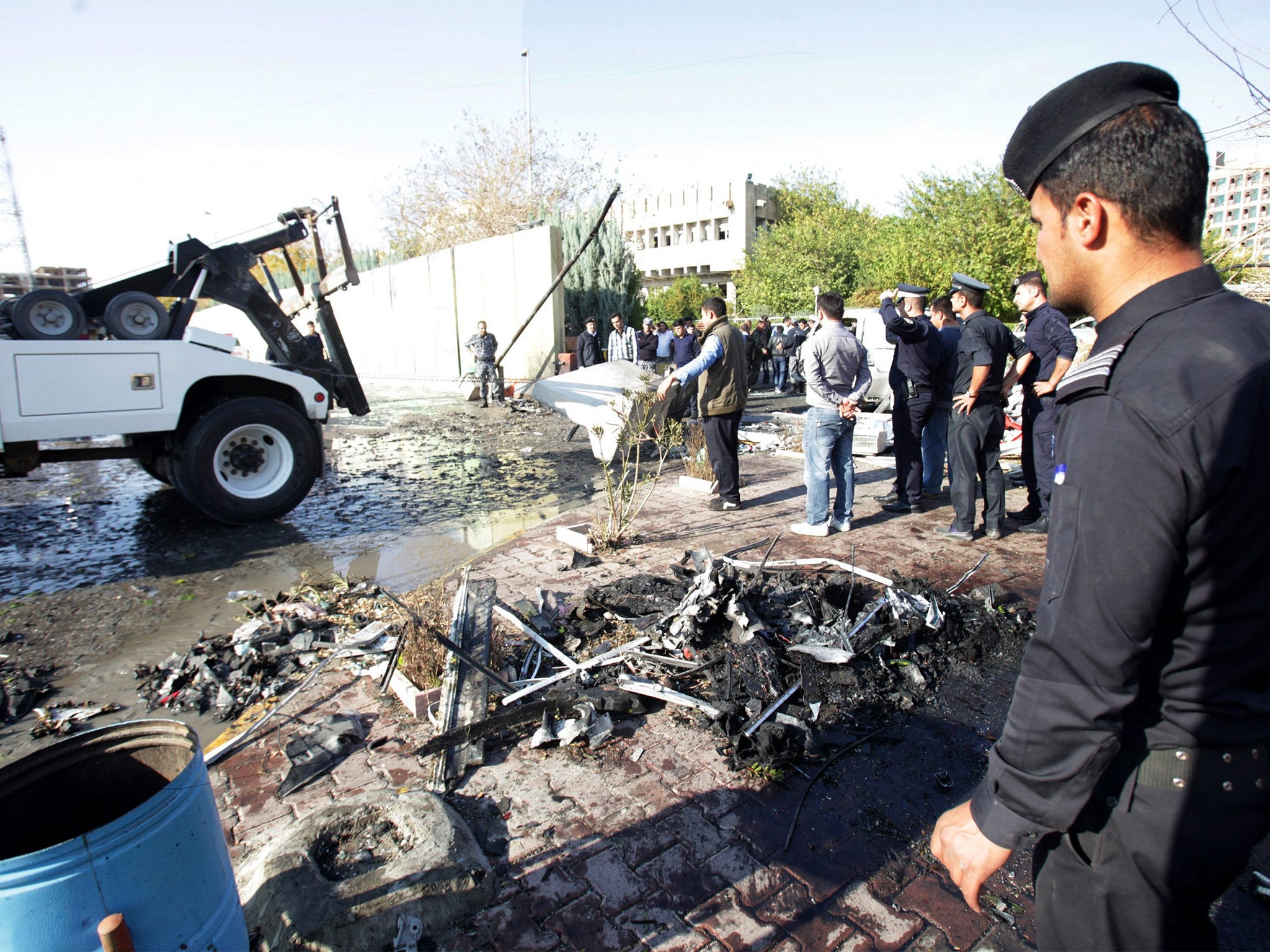Isis extends deadly reach with suicide bombing in Kurdish capital
Residents in what was Iraq’s safest city fear an increase in jihadist attacks

A suicide bomber blew himself up in a vehicle packed with explosives at the entrance to the governor’s office in the Kurdish capital Erbil today, killing at least four people. The attack was claimed by Isis with the aim of spreading insecurity in Kurdish-ruled northern Iraq by showing that the Islamic militants can evade security measures.
The bomber first tried to enter the compound of the governorate near the centre of the city and detonated his explosives when he was stopped by guards. The building has blast walls which may have reduced the damage, but two policemen and two civilians were killed, and 22 people were injured.
Well-armed guards quickly appeared at other likely targets in the city such as government buildings and hotels, with cars being barred from entering and told not to stop for more than a few seconds to leave off passengers.
The governorate, a grim looking building from Saddam Hussein’s times, is close to the ancient citadel of Erbil which is built on a hill made up of the ruins of earlier cities dating back 8,000 years. After the blast, open air markets in the area selling everything from old clothes to furniture, went on functioning despite the risk of a second bomb attack. This may be because people are inured to violence or because Kurds in Erbil have less experience of car bombs than other parts of Iraq. In a single week this month vehicle-borne bombs killed 159 and injured 336 Iraqis, the majority of them in Baghdad.
Isis has a large supply of suicide bombers and it uses such attacks to maintain a sense of insecurity even when it is not making ground attacks. Fanatical, but militarily untrained, foreign jihadis from countries like Britain or France, who would otherwise be useless to Isis as combatants, can be used as bombers against civilian and military targets.
It is the first big bomb attack in Erbil for over a year and underlines that Isis continues to pose a threat to the Kurdistan Regional Government (KRG) which has favourably contrasted its security record with that of Baghdad, where bombings occur daily. Since June, the KRG has had a 650-mile common frontier with Isis which is too long to defend properly.
The failure of the Kurdish peshmerga to defend its positions in August when attacked by Isis had already created doubts among Kurds about the military effectiveness of their armed forces. Previously, the peshmerga was regarded as determined and effective because of its record in fighting Saddam Hussein in the 1980s, but this time it fled without offering serious resistance. In doing so it abandoned the Kurdish Yazidi minority to murder, rape and enslavement by Isis while the Christian community, one of the most ancient in the world, fled their homes and escaped to Erbil and elsewhere in the KRG.
Kurdish leaders say that their armed forces were outgunned by Isis, which had captured American-made armoured vehicles, artillery and tanks from the Iraqi Army. But interviews by The Independent with Yazidis and Christians, who saw Isis units enter their villages and towns, say that they were small in number and using soft-skinned civilian vehicles and not captured American Humvees. The KRG is demanding sophisticated heavy equipment from the US and other allies such as Apache helicopters, tanks and artillery before it stages a counter-offensive.
US air strikes and Iranian backing on the ground saved Erbil in August and steadied Kurdish morale, but it is still brittle. The Kurdish capital is full of refugees who are renting at high prices or living in half-built buildings or tents. The city has many housing and commercial developments but little construction work is going on because of the proximity of Isis forces which are an hour’s drive way.
The KRG is also short of money because it did not receive its share of Iraqi oil revenues for the last eight months because of a dispute with Baghdad. Many of the hotels and restaurants once packed with foreign business delegations attracted by the Kurdish oil boom are now half empty. If thes bomb is followed by others, Erbil’s reputation for being the safest part of Iraq will soon disappear.
Subscribe to Independent Premium to bookmark this article
Want to bookmark your favourite articles and stories to read or reference later? Start your Independent Premium subscription today.

Join our commenting forum
Join thought-provoking conversations, follow other Independent readers and see their replies